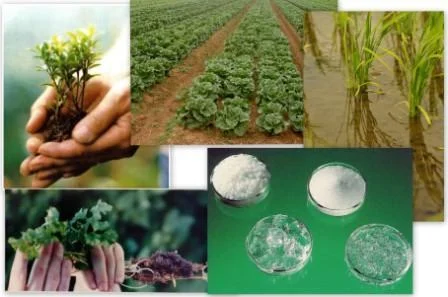채소용 고흡수성 폴리머(SAP)
고흡수성 폴리머(SAP) offer significant benefits for vegetable cultivation by improving water management, enhancing nutrient uptake, and promoting healthy growth. SAPs play a crucial role in optimizing soil conditions for vegetables, leading to higher yields, improved quality, and sustainable farming practices.

다음과 같은 이점이 있습니다. SAPs for Vegetables:
- 수분 유지: SAPs absorb and retain water in the soil, ensuring consistent moisture levels that are essential for vegetable growth, especially during dry periods.
- 급수 빈도 감소: The water-absorbing properties of SAPs allow for less frequent irrigation, conserving water resources and reducing water-related expenses.
- 가뭄 저항: Vegetables treated with SAPs exhibit increased tolerance to drought conditions, as the stored water in the soil provides a buffer against water stress.
- Improved Nutrient Uptake: Adequate soil moisture facilitated by SAPs promotes better nutrient uptake by vegetable roots, leading to healthier plants and improved yields.
- Enhanced Soil Structure: SAPs contribute to soil structure improvement by reducing soil compaction and enhancing aeration, creating a favorable environment for root development.
Applications of SAPs in Vegetable Cultivation:
- Field Agriculture: SAPs are used in open-field vegetable cultivation to improve water efficiency, nutrient availability, and overall crop performance.
- Greenhouse Farming: Greenhouse growers benefit from SAPs by maintaining optimal soil moisture and nutrient levels for greenhouse-grown vegetables.
- Organic Farming: Organic vegetable farmers use SAPs as part of sustainable farming practices to conserve water and enhance soil fertility without relying heavily on synthetic fertilizers.
- Urban Farming: SAPs are utilized in urban farming initiatives, including rooftop gardens and vertical farms, to maximize space utilization and water conservation for vegetable production.

